Navy guardpublished at 14:47 BST 24 April 2015
Lucy Hockings
BBC News correspondent
tweets, external: 48 man guard from #HMSBulwark waiting for dignitaries. #Gallipoli100
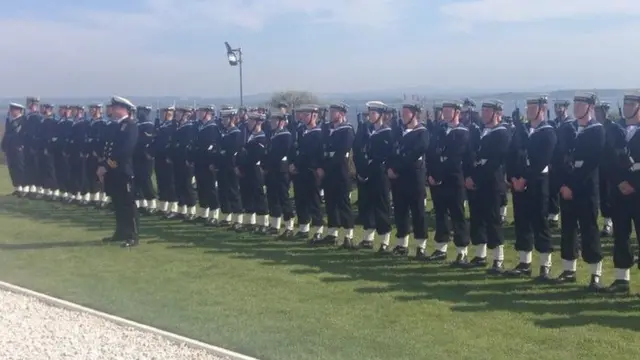
Events mark the 100th anniversary of the Gallipoli campaign, one of the bloodiest in World War One
Allied forces landed on the beaches of the Gallipoli peninsula in modern-day Turkey in April 1915
Allied forces were locked in an eight-month stalemate with Ottoman troops before pulling out in January 1916
An estimated 131,000 soldiers on both sides of the conflict died during the doomed campaign
It was the first campaign that led to major casualties for Australian and New Zealand forces during the war
Leaders of Australia, New Zealand and Turkey, and Princes Charles and Harry, are among those attending remembrance services
Stephen Robb, Henrietta McMicking, Claire Bates and Jastinder Khera
Lucy Hockings
BBC News correspondent
tweets, external: 48 man guard from #HMSBulwark waiting for dignitaries. #Gallipoli100

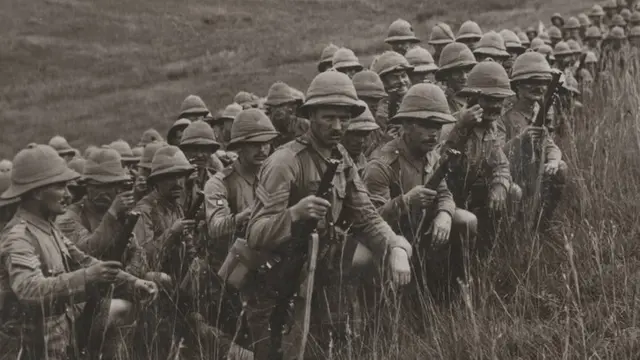 Image source, Getty Images
Image source, Getty ImagesBritish reserve troops awaiting orders to move forward at Cape Helles
The main Allied landing at Gallipoli was at Cape Helles, with a smaller Anzac force landing further north on Z beach, later called Anzac Cove.
On 25 April, 1915, some 18,000 British forces landed at five beaches around the cape - 3,000 troops at Y beach and the rest at W, X, V and S beaches. Their objective for the first day was to secure a ridge about a mile inland called Achi Baba.
Around 3,000 French troops landed at Kum Kale across the Dardanelles on the Asiatic shore. This was a feint designed to confuse the enemy.
Turkish President Recep Tayyip Erdogan and Prince Charles gave speeches at the ceremony at the Abide monument.
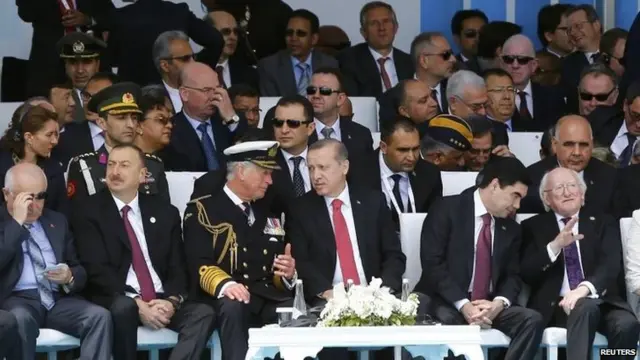 Image source, Reuters
Image source, Reuters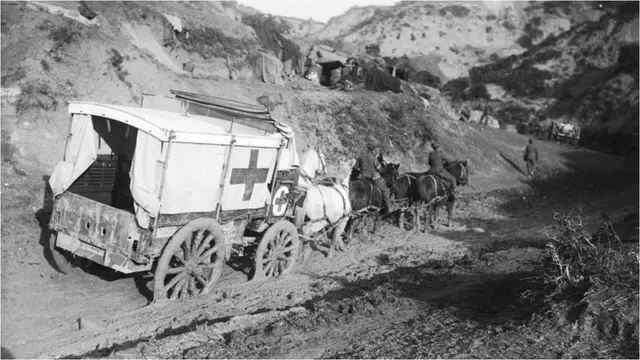 Image source, Getty Images
Image source, Getty ImagesHorses pull an ambulance wagon in Gully Ravine, November 1915
Horses, mules and donkeys were taken by the Allies to Gallipoli. However, the latter two coped better with the shortage of water and steep terrain. The animals played a vital role, transporting ammunition forwards and carrying back injured men to the beaches.
To watch the ceremony, click the Live Coverage tab at the top of this page.
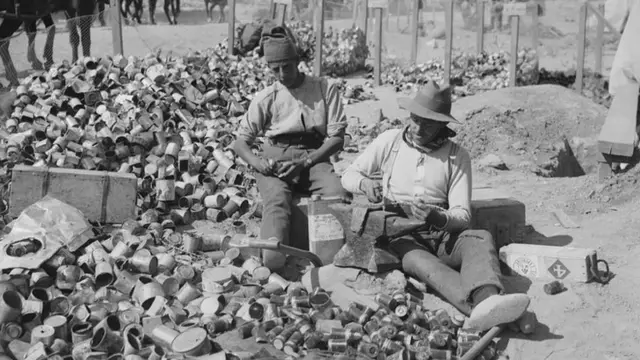 Image source, Getty Images
Image source, Getty ImagesAllied troops prepare for an attack on Krithia in June 1915
The main weapon for Allied soldiers on the Gallipoli peninsula was the infantryman's rifle, backed up with improvised "jam-tin" bombs. Machine guns were in short supply and were less effective advancing up hills.
Claire Gibson
BBC News
tweets, external: Turkish tourist stalls set up in anticipation at Helles Memorial ahead of the #Gallipoli100 ceremony.
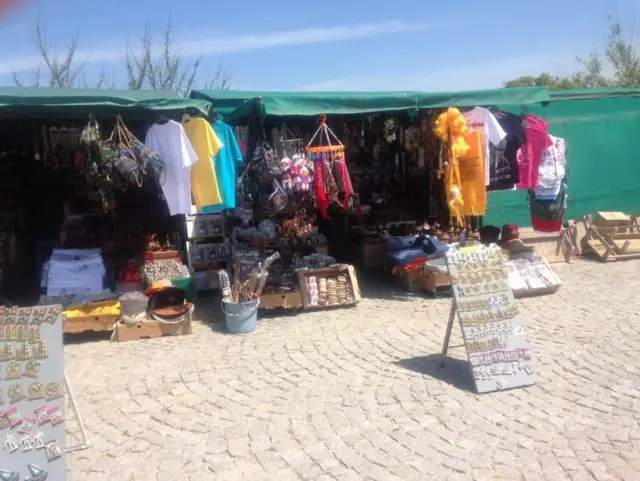
Kate Benyon-Tinker
BBC Middle East Producer
tweets:, external Erdogan has given speech. Now children's choir singing at Abide #Gallipoli100
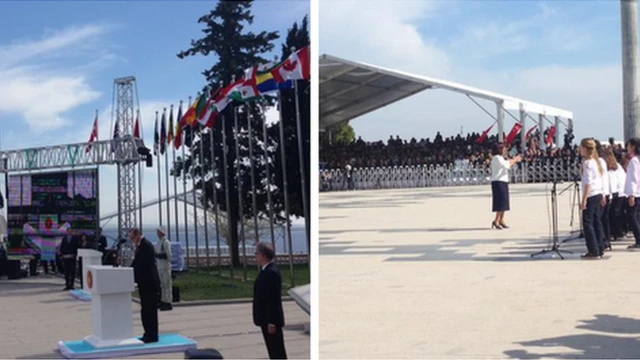 Image source, BBC
Image source, BBC 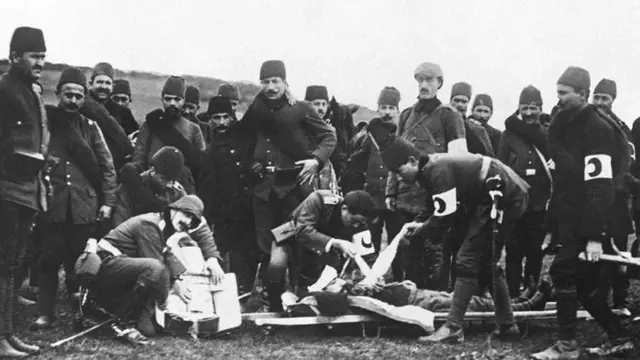 Image source, Getty Images
Image source, Getty ImagesMembers of the Red Crescent evacuate wounded soldiers in August 1915
The Turkish Martyrs' Monument at Abide commemorates the sacrifice of the 86,000 Turkish soldiers who fought and died during the Gallipoli campaign.
The tens of thousands of Turks wounded during the campaign were treated by the Ottoman Red Crescent Organisation, which worked alongside army medical units. The Red Crescent relied heavily on public donations.
The monument took six years to build and was officially opened in 1960.
"I think Canakkale is a very important place from which to give a message of peace to the whole world," Mr Erdogan says.
Lucy Hockings, BBC News
tweets, external: Turkish cavalry, in the dress of 100 years ago. #Gallipoli100
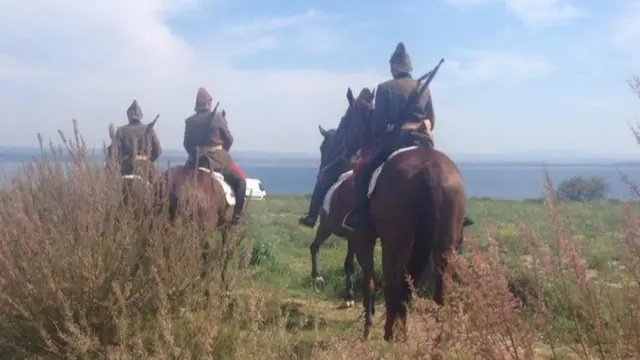
Claire Gibson
BBC News
tweets, external: Lest We Forget. New plaque at the entrance to Helles Memorial to mark #Gallipoli100
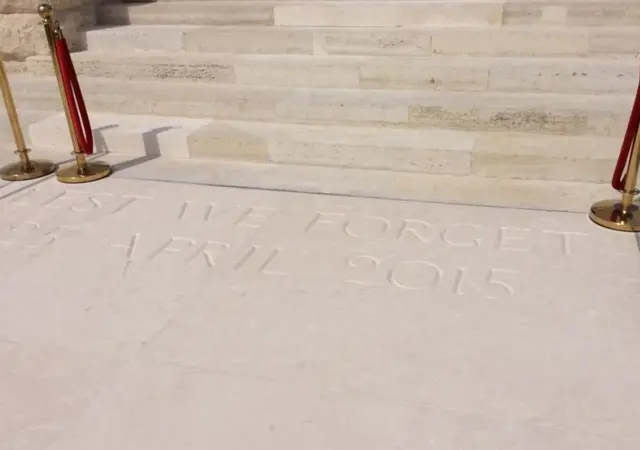
"The battle of Gallipoli is a striking reminder that the Great War was a world war," Prince Charles says, adding we should "remember with shame and profound regret" the persistence of brutal conflict and intolerance across the world.
Turkey's President Erdogan is now addressing the assembled guests.
Claire Gibson
BBC News
tweets, external: Last minute spit and polish at Helles Memorial ahead of this afternoon's centenary service #Gallipoli100
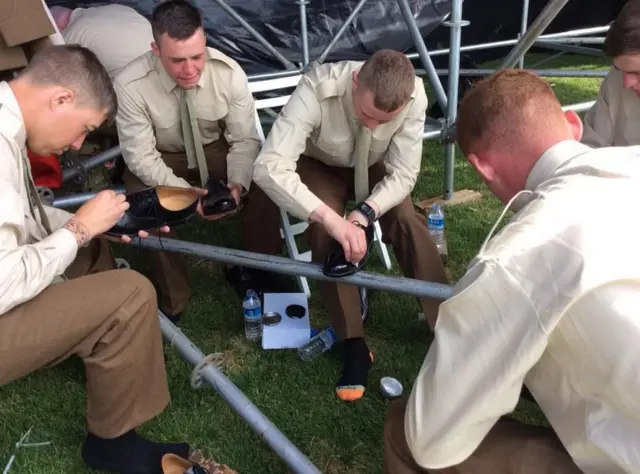
Prince Charles begins his address to the service. "We must remember the heroism and the humanity of those on both sides," he says.
A Christian prayer has now also been offered at the service.
Kate Benyon-Tinker
BBC Middle East producer
tweets, external: Turkish national anthem played at Abide #Gallipoli100
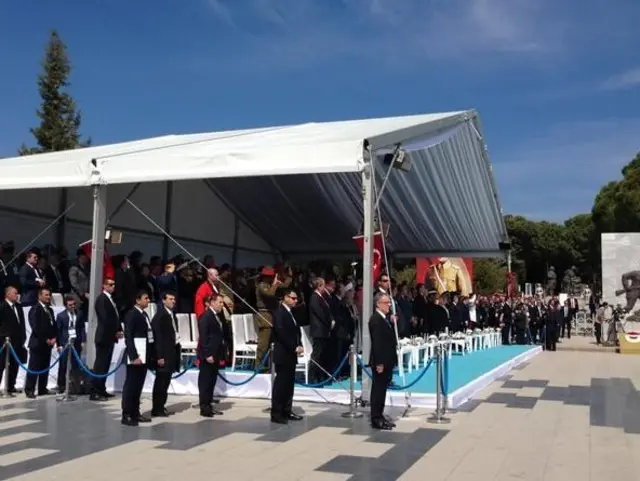
Turkey's head of religious affairs, Mehmet Gormez, is now offering a prayer in Turkish.
A recitation of verses from the Koran followed the laying of the wreaths.